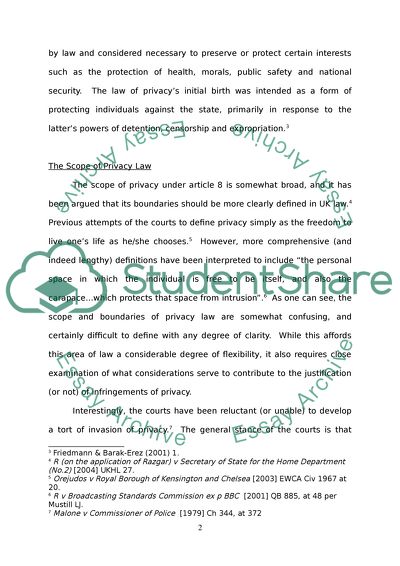Cite this document
(“Privacy Law: Practical and Moral Essay Example | Topics and Well Written Essays - 2000 words - 1”, n.d.)
Privacy Law: Practical and Moral Essay Example | Topics and Well Written Essays - 2000 words - 1. Retrieved from https://studentshare.org/law/1434267-privacy-law-practical-and-moral
Privacy Law: Practical and Moral Essay Example | Topics and Well Written Essays - 2000 words - 1. Retrieved from https://studentshare.org/law/1434267-privacy-law-practical-and-moral
(Privacy Law: Practical and Moral Essay Example | Topics and Well Written Essays - 2000 Words - 1)
Privacy Law: Practical and Moral Essay Example | Topics and Well Written Essays - 2000 Words - 1. https://studentshare.org/law/1434267-privacy-law-practical-and-moral.
Privacy Law: Practical and Moral Essay Example | Topics and Well Written Essays - 2000 Words - 1. https://studentshare.org/law/1434267-privacy-law-practical-and-moral.
“Privacy Law: Practical and Moral Essay Example | Topics and Well Written Essays - 2000 Words - 1”, n.d. https://studentshare.org/law/1434267-privacy-law-practical-and-moral.


